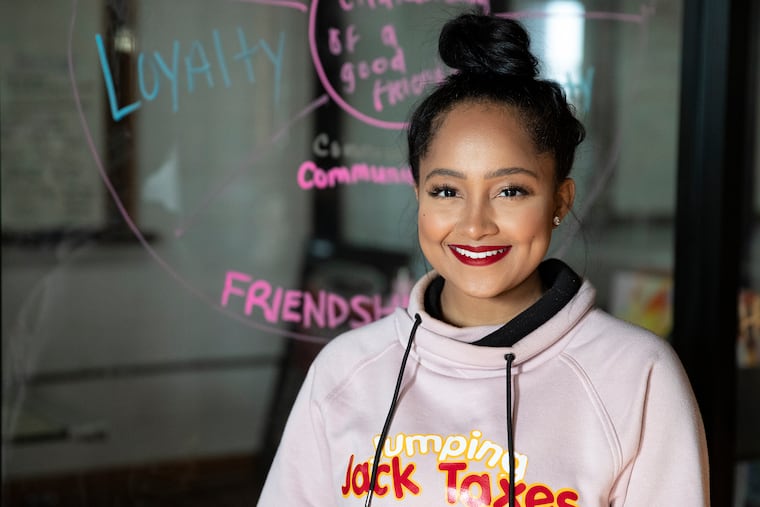This Philly-area influencer promoted her businesses between motivational Christian messages. Now, she must pay customers more than $87,000.
Customers never received the credit-repair and app-creation services that the influencer, Dana Chanel, advertised, state authorities say.

A Philadelphia-area social media influencer has been ordered to pay more than $87,000 to dozens of customers who paid for credit repair and other services that she promoted but did not deliver.
The restitution payments are part of a settlement agreement reached between the Pennsylvania Attorney General’s Office and a South Jersey woman named Casey Olivera, who is better known as Dana Chanel to her 1.1 million Instagram followers.
“Advertising in today’s world has changed, and people trust personalities they follow online to promote desirable goods,” Attorney General Michelle Henry said in a statement. “In these cases, consumers were misled by the influencer and businesses that did not deliver on purchases.”
Neither Olivera, who has described herself as a Christian tech entrepreneur, nor her attorney, Michael van der Veen, who has represented former President Donald Trump, returned several requests for comment by The Inquirer.
The settlement, announced Tuesday, ends a two-years-long legal battle that began when then-Attorney General Josh Shapiro filed a lawsuit against Olivera in November 2021.
“Dana Chanel built a following online by presenting herself as a Black woman-owned small business success story,” Shapiro, now Pennsylvania’s governor, said in a statement at the time. “She advertised the products of her companies as a way for other Black small business owners to achieve what she did. Then, she ripped off the same community she claimed to care about.”
On her platforms, Olivera, of Sewell, Gloucester County, promoted two businesses, Defendant Credit Exterminators, Inc., a credit repair company, and Alakazam Apps, a mobile app developer, both of which she co-owned with relatives, according to court documents.
But customers of those businesses did not always get what they paid for, state prosecutors said.
Several customers of Defendant Credit Exterminators reported to the state that they paid about $2,000 apiece or more for credit coaching and monitoring, resolution of delinquent credit accounts, and other repair services. According to the complaints, detailed in the state’s lawsuit, they never received the services or a refund.
Alakazam Apps customers, including small-business owners and nonprofit executives, paid up to $2,000 each for the creation of custom apps they never received. One customer said she called the company more than 10 times, according to the lawsuit, but never heard back or got a refund.
By misleading customers, Olivera violated state consumer protection laws, Henry said, and can no longer advertise or sell credit-repair or mobile-app services.
As her persona Dana Chanel, Olivera still promotes a wide array of other products, including a “heavy metal detox spray” which she sprays into her children’s mouths and “instant life insurance coverage for as low as $1 dollar per day.”
As of 2019, when The Inquirer profiled Olivera, Olivera was running at least five companies out of her North Philadelphia headquarters: Sprinkle of Jesus, which offered prayers, sermons, and other inspirational messages; Curl Bible, an online beauty store; Jumping Jack Taxes, which provided tax service; Alakazam, the app developer; and Earn, which state prosecutors would later say replaced Credit Exterminators in name but continued to offer the same services.
The Middletown, Del., native was also growing her Instagram following, which at the time numbered fewer than 680,000.
Olivera told a reporter then that she found God years earlier “while she was working the front desk at a strip club in town, which she won’t identify,” the article read. Olivera said that she was also motivated by another higher purpose — the desire to help Black communities build intergenerational wealth through tech entrepreneurship.
“Money is the last thing, what we need to have is this power. And we only have power in what society deems a financial asset, and it’s data,” she told The Inquirer in 2019. “It’s how fast can I talk to you before the enemy does.”
According to the terms of Tuesday’s settlement, Olivera and her two companies, which she co-owned with her father and sister, must pay a total of more than $120,000 — about $87,000 in restitution, $31,000 in legal costs, and $6,000 in civil penalties.